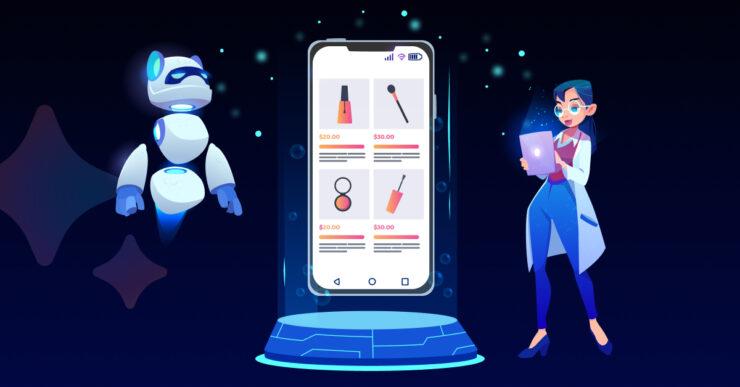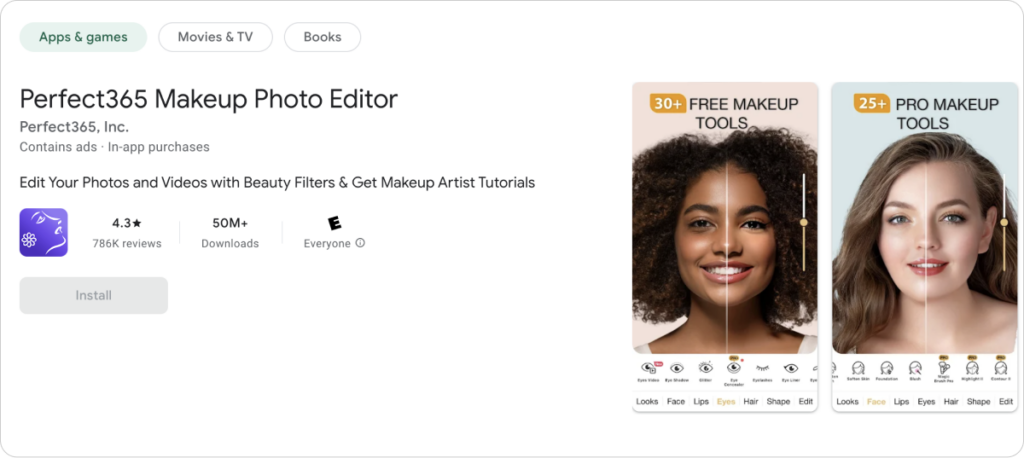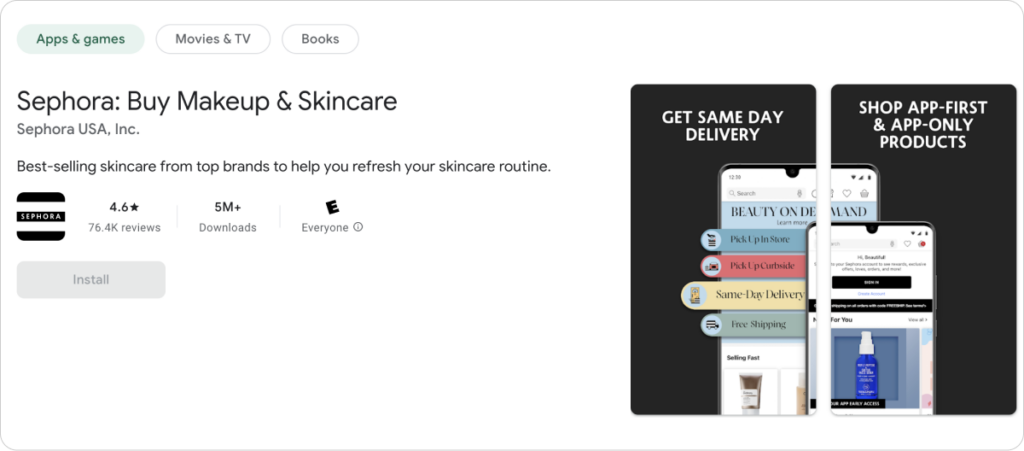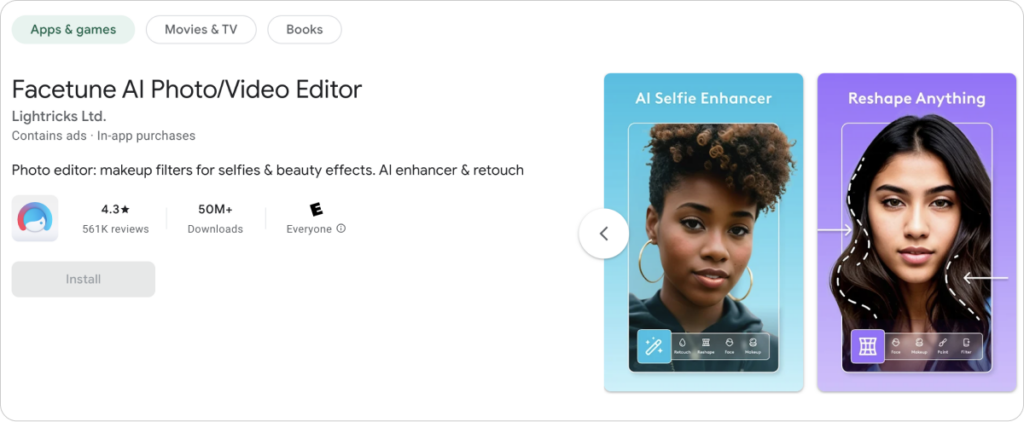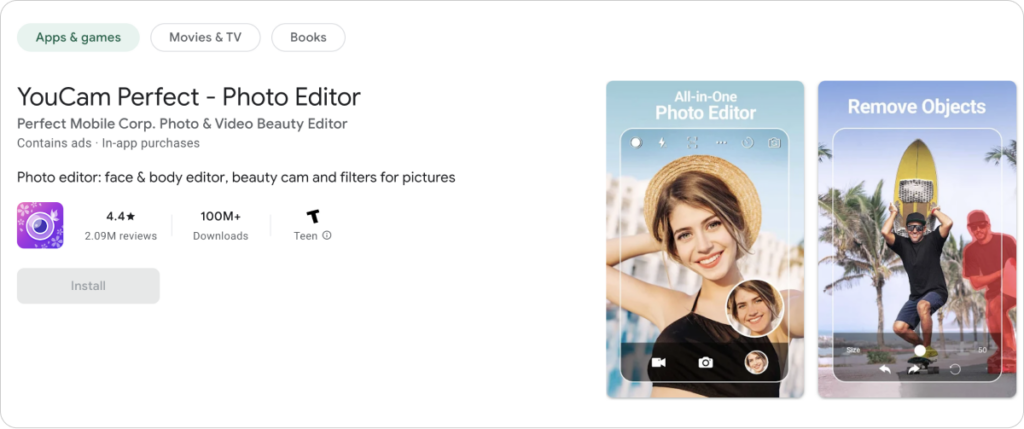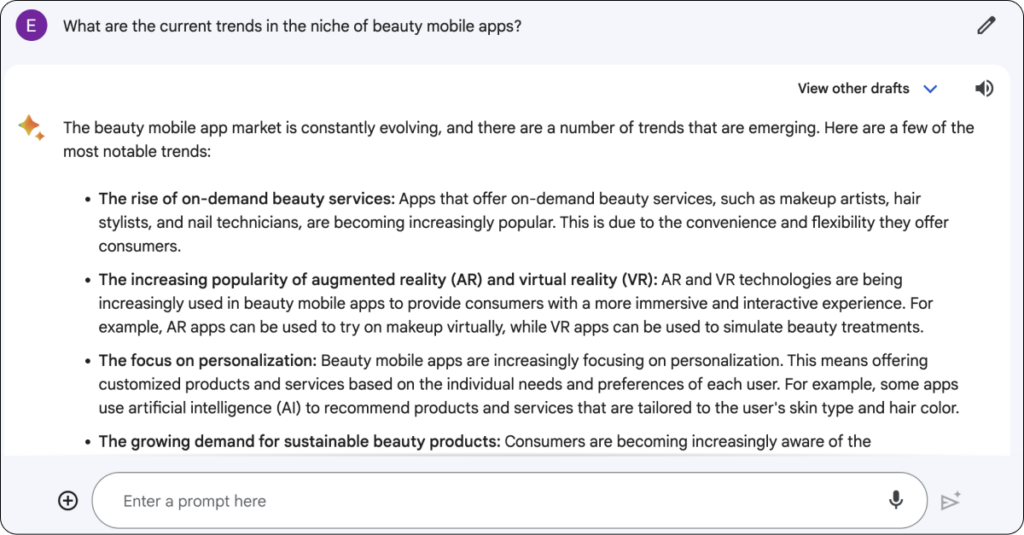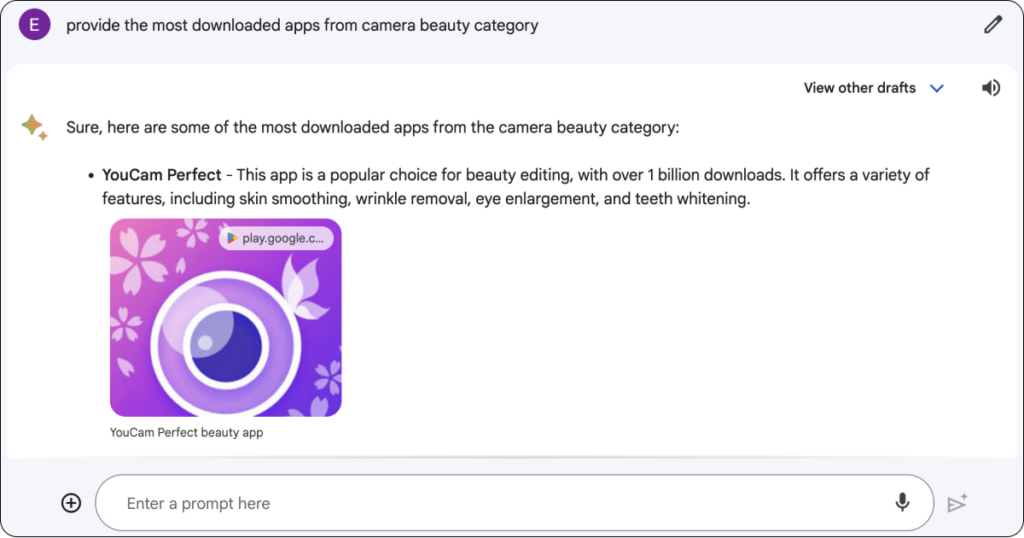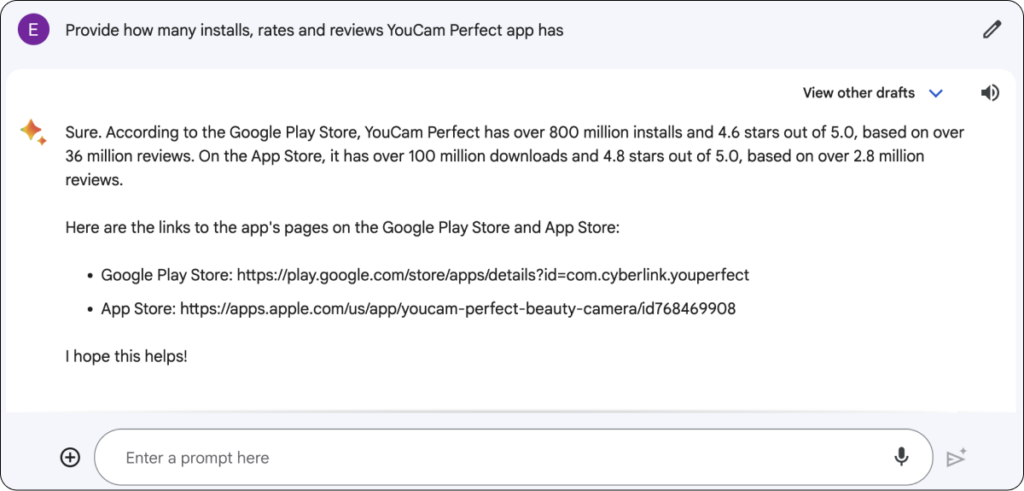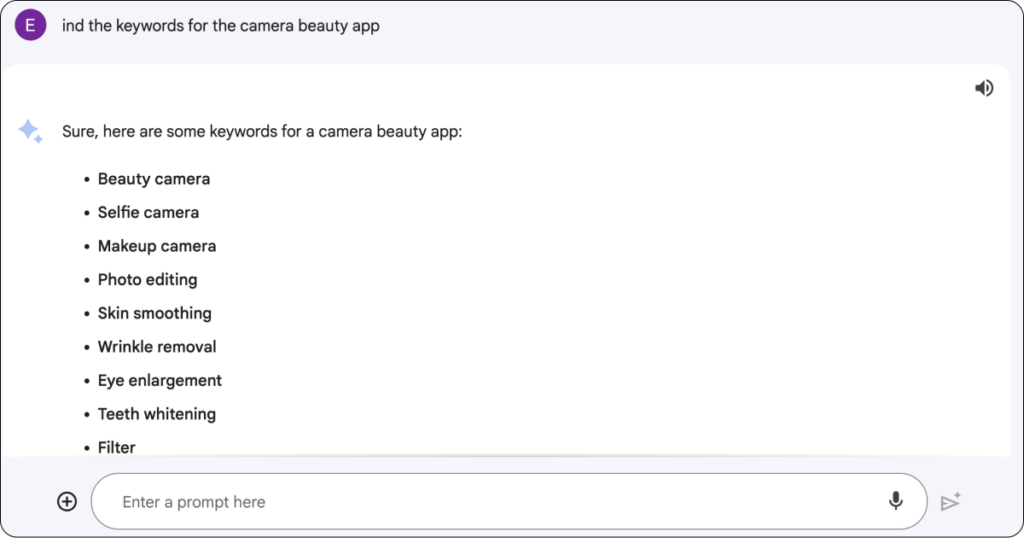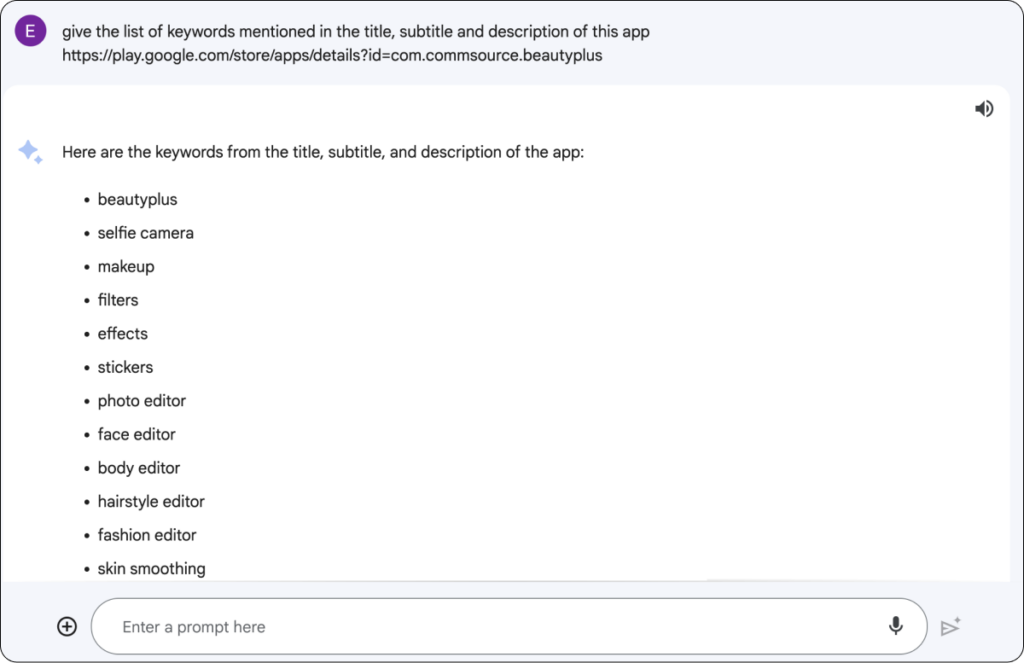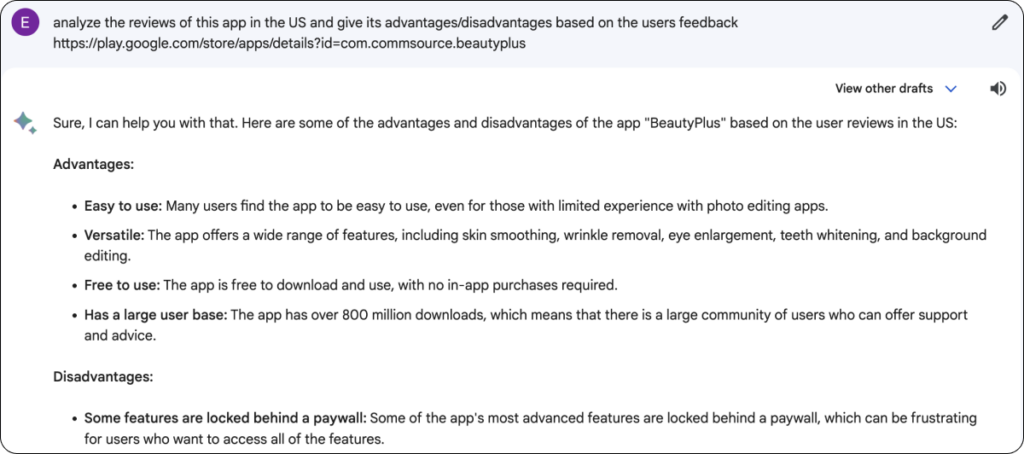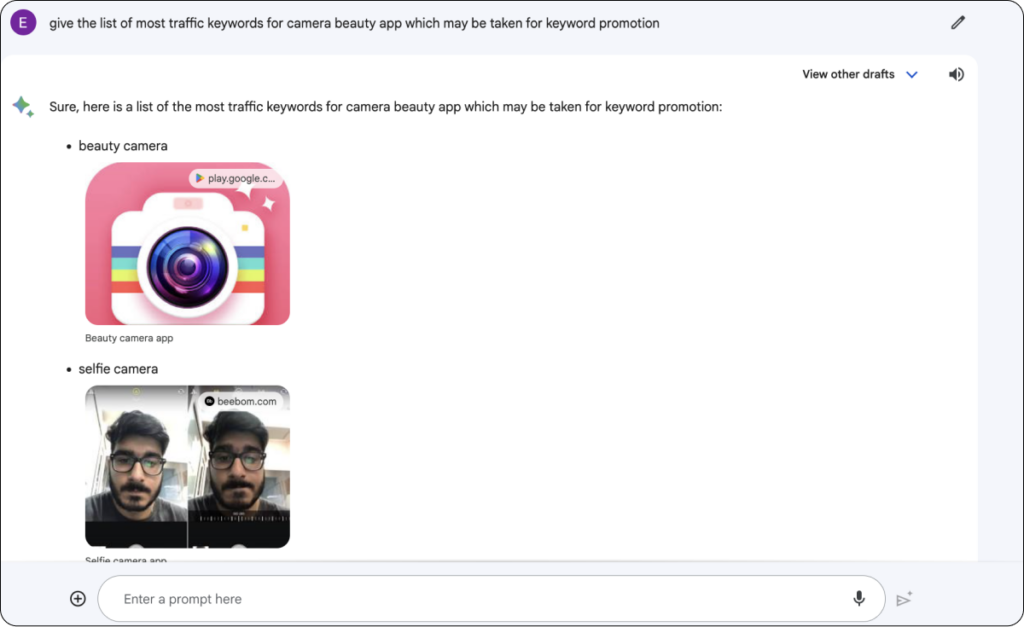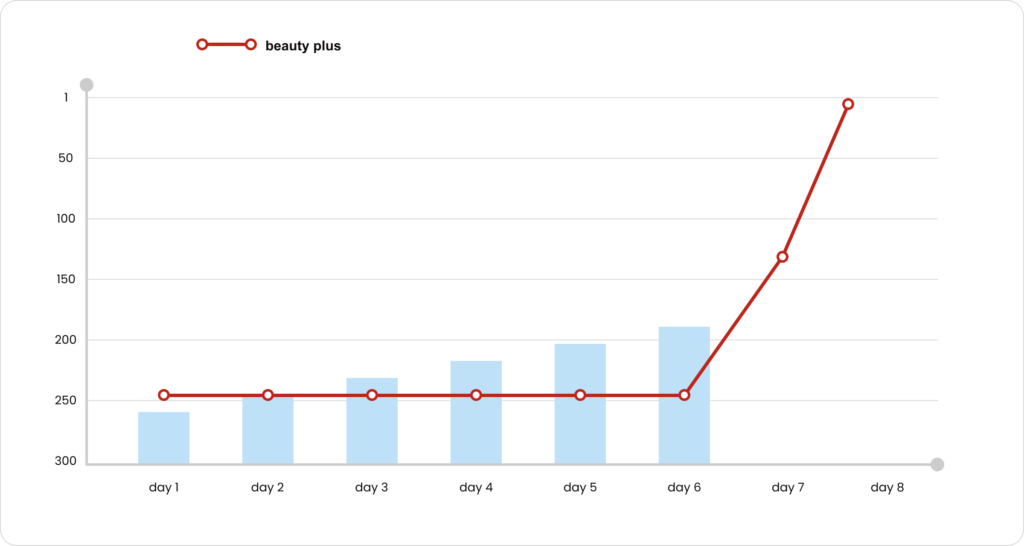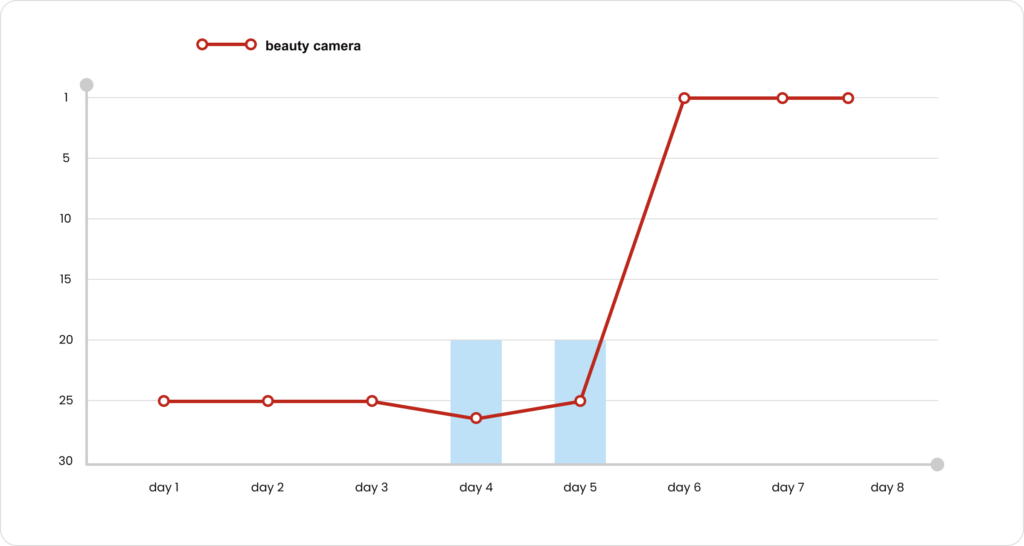In the ever-evolving realm of beauty and personal care, mobile applications have ushered in a significant transformation in how consumers access beauty insights, products, and services. These apps cater to the diverse needs of beauty enthusiasts worldwide, offering everything from virtual makeup trials to personalized skincare consultations. However, merely developing a standout mobile beauty app is just the first stride in a highly competitive market. To achieve genuine success, the key lies in effectively promoting your app and forging connections with your intended audience.
Within the following article, we will delve into the dynamic potential of Bard AI and its role in the proficient promotion of your mobile beauty app. We’ll explore valuable tips and best practices that allow you to harness the capabilities of this AI-powered assistant to engage, enlighten, and captivate your audience. Whether you are a budding startup looking to launch your beauty app or an established industry leader in search of pioneering ways to connect with your users, continue reading to unlock the transformative opportunities that arise from the integration of Bard AI into your mobile app promotion strategy.
What is the current situation on the market of beauty apps?
The beauty mobile app market is experiencing rapid growth. For example, according to the report provided by ReportLinker, the global mobile beauty camera apps market is projected to reach an estimated USD 1.51 billion during 2022-2026, displaying a compelling CAGR of 16.54%.
Within this dynamic market, several noteworthy trends are emerging:
- On-Demand Beauty Services: Mobile apps offering on-demand beauty services, such as makeup artists, hair stylists, and nail technicians, are gaining significant traction. Their appeal lies in the convenience and flexibility they provide to consumers.
- Augmented Reality (AR) and Virtual Reality (VR): AR and VR technologies are finding increasing applications in beauty mobile apps, offering users a more immersive and interactive experience. For instance, AR apps enable virtual makeup trials, while VR apps simulate various beauty treatments.
- Personalization: Beauty mobile apps are placing a growing emphasis on personalization, tailoring products and services to individual user needs and preferences. Some apps leverage artificial intelligence (AI) to recommend skincare and cosmetic products that align with the user’s unique skin type and hair color.
- Sustainable Beauty Products: With consumers becoming more environmentally conscious, there is a rising demand for sustainable beauty products. Beauty mobile apps are responding by offering eco-friendly products and services crafted from sustainable ingredients and packaging.
The beauty mobile app market is a dynamic and evolving landscape, with these trends representing just a fraction of the factors shaping its trajectory. As the market continues to evolve, we can anticipate the emergence of even more innovative and captivating beauty mobile apps designed to cater to the diverse needs and preferences of consumers.
All the beauty apps actually may be divided in two groups: the ones that offer beauty services or shopping (like Sephora) and the ones that help to edit photos, try on make ups, hair styles etc. Let’s check the most famous examples of beauty apps available on the market for now
1. Perfect365: Perfect365 is a mobile app that allows users to try on makeup virtually. The app uses augmented reality technology to superimpose makeup looks on the user’s face.
2. Sephora: Sephora is a major beauty retailer that sells a wide variety of products from different brands. The company also has a popular mobile app that allows users to shop for products, book appointments with beauty experts, and create wishlists.
3. Facetune2: This app is known for its powerful editing features, which can be used to make drastic changes to the appearance of your face. It offers features such as skin smoothing, wrinkle removal, and eye enlargement.
4. YouCam Perfect: This app is a popular choice for beauty editing, with over 1 billion downloads. It offers a variety of features, including skin smoothing, wrinkle removal, eye enlargement, and teeth whitening.
These apps have gained immense popularity and are now familiar to users all around the world. They have become well-known and widely used on a global scale, transcending geographical boundaries and gaining users from diverse regions and cultures. So let’s try to define how AI (artificial intelligence) may help in the creation of the beauty app that may attract the users’ attention the same way.
How to use Bard AI for beauty mobile apps promotion?
Recently AI became one of the main tools used in digital marketing in general and in mobile marketing particularly. We have already talked a lot about the ways to use Chat GPT and other tools not only for the content creation but also in ASO and data analysis. By the way, do not forget to read our article about using Chat GPT in mobile marketing to find out more details.
Promoting an app involves numerous steps and stages, ranging from market analysis to app monetization. While not all of these tasks can be exclusively handled by AI, we’ve observed a growing trend where AI accelerates processes and enhances efficiency in many aspects of app promotion.
1. Analyze the beauty apps market with Bard AI
One of Bard AI’s notable advantages over Chat GPT lies in its unrestricted access to information. Unlike Chat GPT, which is limited to data up to 2021, Bard AI doesn’t face such constraints. It can provide information based on what’s available through Google search.
This unrestricted access to data is particularly advantageous for data and market analysis. It enables us to access more current and accurate information about prevailing trends and tendencies on Google Play and the AppStore, especially when analyzing the specific niche we’re targeting with our app. In the context of beauty apps, let’s consider some examples.
To conduct a niche analysis effectively, it’s essential to identify the current trends that dominate the field. Let’s request Bard AI to provide the most significant ones:
At the same time, due to the fact that Bard AI has more actual data, it is extremely effective in competitors analysis as it can provide the current information about the apps published on the stores. Let’s check some examples of competitors provided by Bard AI while analyzing the camera beauty apps category
Bard AI has an advantage over ChatGPT in that it provides direct links to the Google Play Store, which can be followed immediately and checked on the market. ChatGPT, on the other hand, is unable to provide current links.
Bard AI’s most significant advantage over ChatGPT when analyzing competitors is its ability to provide details about the app, such as the number of downloads, ratings, and reviews. This means that we do not have to manually check each app on the store. Additionally, Bard provides links to the apps on both stores. Given this, we would definitely prefer Bard AI for market and niche analysis.
To sum up, Bard AI is perfectly suited for data analysis because it provides direct links to the stores, so you can check the information there. It also provides the current visuals of the app, which is helpful for understanding its features and appeal.
Here are some specific examples of how Bard AI can be used for data analysis:
- You can use Bard AI to analyze the market share of different beauty apps.
- You can use Bard AI to track the performance of your own beauty app over time.
- You can use Bard AI to identify new trends in the beauty app market.
- You can use Bard AI to research the competition and find ways to improve your own app.
Overall, Bard AI is a powerful tool that can be used to gain insights into the beauty app market. If you are looking to improve your app or enter the market, we would recommend to have a look to Bard AI and check its functionality.
2. Find the most popular keywords for keyword research and ASO
One of the most important steps in App Store Optimization (ASO) is keyword research. This is the process of finding the most relevant search terms that people are using to find apps like yours.
We have already talked about finding keywords using ChatGPT in particular video. But how does this work with Bard? The process is actually quite similar. We simply ask Bard to find the keywords for a camera beauty app, for example.
Here are the steps involved in keyword research using Bard:
- Ask Bard to find the keywords for a camera beauty app.
- Bard will return a list of keywords that are relevant to camera beauty apps.
- Filter the list of keywords to remove any irrelevant or duplicate keywords.
- Add the keywords to My Keywords at Keyapp to analyze the remaining keywords to determine their popularity and search volume.
- Choose the most relevant keywords to use in your app’s title, description, and other metadata.
There are no huge differences between Chat GPT and Bard in keyword research as still it is necessary to proceed manually with keyword analysis and defining which ones are completely relevant for your app, but still the advantage is that Bard follows the links and may provide the list of keywords the competitor app has in text metadata even if you provide only the link to the store. So the sum up is that Bard can completely follow the links.
3. Analyze the app reputation using Bard AI
As you could remember from the previous articles, app reputation is one of the most important factors influencing app success, user attraction and even the results of keyword promotion conducted on our platform. Working with app rates and reviews is a considerable part of application promotion process which should be paid attention to at the same level as other components. At the same time, to analyze the user feedback manually to get the general picture of what users say takes a lot of time and efforts, while it is needed to analyze not only your app reviews, but competitor apps as well to know the users demands.
In one of our previous articles we have already discussed how to use Chat GPT in app reputation analysis, but the main disadvantage in such approach is that this AI doesn’t follow the links and you need to provide the reviews text so to get the key notes.
Working with Bard AI makes the app reputation analysis easier due to the fact that everything we need to do is to provide the link to the app and write a prompt. We did this with one of the most famous camera beauty apps and received the detailed points with pros and cons of the app based directly on the users feedback within several minutes.
4. Use Bard AI to get the suggestions for keyword promotion
We often emphasize the critical importance of App Store Optimization (ASO), asserting that it should take precedence over any other form of promotion. However, ASO doesn’t always guarantee top keyword rankings. If your goal is to secure organic traffic from searches, it becomes imperative to achieve high rankings for high-traffic keywords, and this is where keyword promotion comes into play. Keyword promotion leverages keyword-targeted installations to directly impact the algorithms of Google Play and the App Store, signaling the need for increased app visibility.
The process of keyword promotion encompasses several key steps, including keyword research, strategy selection, results analysis, and ongoing rank monitoring. The specific strategy employed for promotion depends on the app store you are working with, the current rankings for specific search queries, and the popularity of keywords. Bard AI can help at least with keyword suggestions. Of course, we need to remember that all the keywords should be relevant and checked for the popularity on analytic service (such as Keyapp ASO tools), although we can ask Bard AI to give the most traffic requests according to their algorithm (we cannot know the popularity for sure, but the advantage is that Bard is Google product and this may influence the choice of keywords it makes).
Do not forget to check the relevance and app positions for the provided keywords. After this your app is ready to start the keyword promotion!
So let’s check some examples beauty app can achieve with keyword installs. The first app we worked with is published on Google Play and was promoted in the US for the keyword “beauty plus”. The position we started the promotion from was 248, so we used the typical strategy for Android starting with low amount of 10 installs and increasing the volume step be step every day. As the result application achieved top 2 several days after the campaign was finished.
The next example is for iOS. The application was promoted for the keyword “beauty camera” in Australia. As we remember the strategy for AppSTore differs a lot compared to Google Play so we set the order for 2 days with 40 installs daily starting with rank 25. After the installs were added app achieved TOP the next day.
SUM UP
In conclusion, the world of beauty and personal care apps is experiencing a remarkable evolution, reshaping how consumers engage with beauty products and services. Developing an exceptional mobile beauty app is just the beginning in this competitive landscape. To truly succeed, effective promotion and engagement with your target audience are paramount. In this article, we’ve explored the dynamic potential of Bard AI and its role in efficiently promoting your mobile beauty app. We’ve discussed valuable insights and best practices for leveraging this AI-powered assistant to captivate your audience. Whether you’re a startup launching your beauty app or an industry leader seeking innovative ways to connect with users, integrating Bard AI into your app promotion strategy can unlock transformative opportunities.

